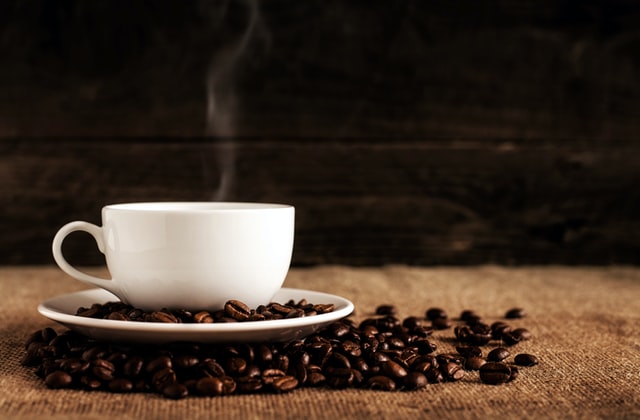Caffeine seems to be a good choice whether you’re trying to get out of bed on a gloomy morning or make it through the world’s longest staff meeting. But does your caffeine addiction help you or hurt you?
Beth Czerwony, RD, a registered dietitian, says you can get too much of it. It can give you more energy and help you get through the day, but you can also get too little.
“Caffeine is a stimulant, and it has different effects on your body,” says Czerwony. “How much is too much caffeine? You have to think about the pros and cons.”
How much caffeine can you have in a day?
Who you are affecting the answer. Not everyone can drink caffeine safely. Some people should stay away from caffeine, such as:
- Children.
- People who take anti-anxiety drugs.
- Women who are expecting or who are nursing.
- People who have high blood pressure or heart disease.
Caffeine in small amounts is safe if you are healthy in other ways. Here’s where the lines are.
- Healthy adults shouldn’t take in more than 400 milligrams (mg) of caffeine per day. That’s the same as about 10 cans of soda or four 8-ounce cups of brewed coffee.
- Teens shouldn’t have more than 100 mg of caffeine per day (one 8-ounce cup of coffee or about two cans of cola).
What happens when you drink too much coffee
Caffeine isn’t all bad, of course. Caffeine is a stimulant, so it can give you more energy, make your body and mind work better, and even help you burn fat.
But sometimes more isn’t better. Too much caffeine can cause side effects that can be unpleasant or even dangerous, such as:
Insomnia
If you didn’t get much sleep the night before, you might grab a cup of coffee to help you get through the next day. The problem is that too much of it can keep you up all night the next day. “It turns into a vicious cycle,” says Czerwony.
Don’t drink caffeine in the afternoon or evening if you want to get a good night’s sleep.
Anxiety
Czerwony says, “Caffeine wakes up your central nervous system.” “That can make you feel worried, jumpy, and irritable.”
If you cut back on caffeine, these side effects may be less likely to happen. But if you have an anxiety disorder, you might want to stay away from caffeine completely.
A racing heart and heart palpitations
Along with anxiety, heart palpitations happen to a lot of people. Both can be made worse by coffee.
Heart palpitations can make you feel like your heart is racing, fluttering, or even skipping a beat. Even though they aren’t usually dangerous, they can be scary, which is a good reason not to have that second cup of coffee.
Dehydration
Caffeine is a diuretic, which means it makes you go to the bathroom. Also, if you drink coffee all day, you might not be drinking enough water. Make sure to drink a lot of water along with any drinks with caffeine to avoid getting dehydrated.
Blood pressure that’s too
Some research shows that caffeine can make your heart rate and blood pressure go up by a little bit. People who already have high blood pressure or other heart problems might have trouble with this increase.
Heartburn and an upset stomach
“Caffeine can make your stomach make more acid,” says Czerwony. The result is heartburn, which is painful.
Acids in coffee can make the problem worse, but it’s not the only cause. Acid reflux can also be caused by caffeine, which is found in soda and other drinks. “Too much caffeine can make you feel sick to your stomach,” she says.
Caffeine is dangerous
When you get too much caffeine, it can hurt you. This is one reason why Czerwony says to stay away from energy drinks and shots, which can have a lot more caffeine than a strong cup of coffee.
Caffeine can also be found in weight loss pills, and too much of it could cause serious and possibly fatal problems with the heart’s rhythm.
Caffeine withdrawal
When you stop drinking a lot of caffeine, your body might go through withdrawal. If you don’t drink your usual pot of coffee, you might get a splitting headache.
People who use caffeine can also feel tired after using it. In the short term, caffeine makes you feel more awake. When it wears off, though, you might feel even more tired than you did before you had coffee.
How to cut down on caffeine without getting headaches when you stop
Some people can’t handle caffeine as well as others. If you’re taking less than 400 mg per day and the side effects aren’t bothering you, you might not have to give up your morning coffee or afternoon soda.
But what if you wish you had less power over your cold brew habit? The first step is to figure out how much caffeine you’re taking in. There are many foods and non-food sources of the stimulant, such as:
- Tea.
- Soda.
- Coffee.
- Chocolate.
- Energy drinks.
- Helps people lose weight.
- Some pain relievers can be bought without a prescription.
Czerwony says that once you know where your caffeine is coming from, you can make a plan to cut back. Cut back on caffeine slowly over the course of a few weeks to avoid headaches and other withdrawal symptoms. Czerwony suggests that you switch from the coffee you usually drink to half decaf. Or, try substituting sparkling water or herbal tea for every other can of soda.
With some trial and error, you’ll find a balance that keeps you awake and energized but doesn’t make you feel bad. “There are some good things about caffeine, but it can really get out of hand,” says Czerwony. “You can have too much of a good thing.”
